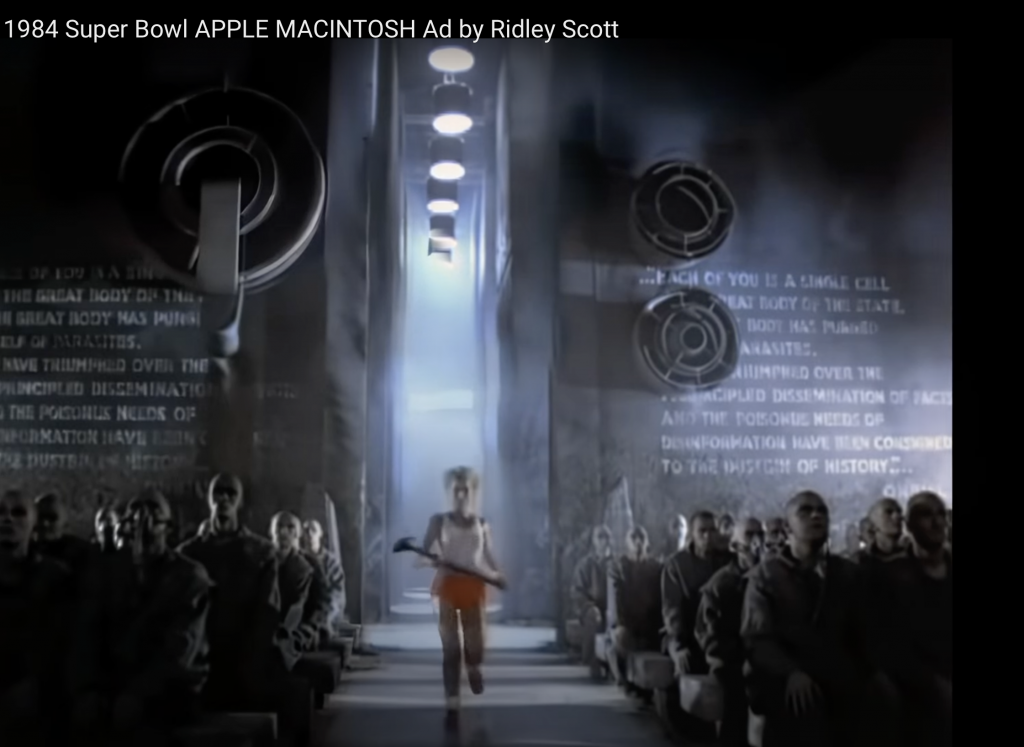(see previous posts for other excerpts from the Preface)
==============
Generation Z gets what I’m talking about when it comes to the work that poetry can do. So do many Millennials and Gen-Xers, and even some agèd Boomers like myself. It’s basically the Millennials and Gen Z globally who created live “Spoken Word” poetry events because they saw them as essential. In doing so, they returned poetry to its performance and community-making roots while also acknowledging the importance of rap music. But they were also following precedents like Langston Hughes’ live poetry readings in the 1930s-1960s, which sometimes were also accompanied by music; or the Beats in the 1950s-1970s, who turned their events into protests against the Cold War, nuclear arms, and (later) the war in Vietnam.
By the 1970s in the U.S., the Black Arts and Nuyorican Poets Café readings were the next generation’s version of live poetry as a genuinely populist art form. It was also a movement that had to improvise in order to find performance spaces, in cafés, bookshops, lofts, and elsewhere. Before the Nuyoricans Poets had a café, their events were held in organizer Miguel Algarín’s living room. Sometimes (as with Gil Scott Heron, the Last Poets, Sonia Sanchez, Jayne Cortez, and others in the U.S., and Linton Kwesi Johnson in Britain) readings in the 1970s also mixed together poetry and music. Poetry, live performance, and populist appeal also characterized developments in Latin America from the 1960s on. In fact, Pablo Neruda surely holds the record for a poet reading to the largest audiences: some of his performances filled football stadiums. Neruda also read to workers in factory canteens: how many other poets can boast of that?[i]
Today’s twenty-first century Spoken Word networks build on its predecessors. All these groups expanded poetry events beyond primarily academic settings, and sought a much broader audience diverse in terms of class as well as race. They also greatly increased the role of audience participation in the performances, providing feedback (including finger snaps) and shouted call-and-response energy. For young people all over this planet in the 2020s, satiric rage, trauma, and pastoral dreams of healing are living things—each one forming new communities emerging in the midst of an emergency.
Most young people who read see no contradiction between exploring imaginative worlds and asking questions about power—who does or does not get to tell a story or drive events. They’re understandably not happy with the world their elders have dumped on them. They also know that we need a broader, deeper, and more diverse “canon” of poets and creators who are reinterpreting the past and shaping a different, non-lethal future for the only home we have. I offer one such expanded canon of essential poets here—with no claims that the poets I praise are a definitive grouping. They are just some of the ones I’ve come to know and love—those discovered on my own, but many others encountered because colleagues and students recommended them. I encourage other teachers and creators to offer their own, along with ways to model how best to engage a poem.
This book began in the depths of Covid isolation in 2020, when (along with many other teachers) I lost being able to teach in-person classes. We had to resort to trying to hold discussions where each of us were imprisoned in a box on a screen, like some demented version of Hollywood Squares. That sharp sense of losing a community provoked me—like many others; I make no claim to uniqueness here—to reimagine what a living ecosystem/community of minds could be like, and how appreciating together the mysteries of many differentkinds of poems together might help us rebuild that.
My temperate optimism about youth and their interest in the arts as community-making persists despite first-hand knowledge of flaws in the U.S. education system that work to maintain or increase structural inequality, rather than diminish it. Despite the fact that arts and science educators are being systematically attacked at present, while many also struggle to make a living wage. Despite the deadly inequities (and their long histories) baked into our societies as a whole. Despite proof that some people, just because they’ve made billions of dollars, think they’re smarter than everyone else and more knowledgeable about the engineering innovations that, if we just listen to them, will miraculously save us all. Despite the fact that many people think education and culture are the problem—not greed, arrogance, ignorance, and exponentially increasing social inequality.
I’m stubborn, like youth is. But I’ve shared literature and listened and talked about it with young adults for over forty years. Some of my courses at Swarthmore College have been cross-listed with either Black Studies or Environmental Studies, and teaching in those interdisciplinary fields, as well as in literary history, has informed my readings in this book. Further, in many of my literature courses close to or over half of the students have been students of color. I’ve taught many first-generation students too. All (or at least most) of these students, regardless of gender or color or their comfort level with academia, tolerate an old white guy giving them all this unheard-of stuff to read. They’ve learned that I also give them space to discover new voices and visions and, through that, new versions of who they might aspire to become. They are eager to explore different ways of answering my questions. But they also single out elements of the readings that most fascinate them, after which they pose their own questions and test their answers. As they do this, they’re learning the pleasures of laser-focused attention, and curiosity. Poems embody that. They’re little lenses—but with music too.
Many other teachers can testify to something similar happening. That’s what keeps us going despite all the learning assessment strategies and committee decision-making we have to put up with. In Swarthmore humanities classes, the students in the seats have an unpredictable mix of interests. Lots are nat sci or soc sci majors of one kind or another (or will be). Many others feel more at home in humanities and the mysteries we pose rather than solve. And just about everyone seems keen on upping their programming skills. But here’s a news flash: the “death of the humanities” at colleges and universities has been greatly exaggerated. The real issue is, who is trying to tell you the humanities have died, and what are they motives? What arts and humanities classes are busy doing is evolving, adapting. This book will show you some of the reasons why.
Students in imaginative literature classes bring different skill-sets, but they have at least one thing in common. They are frustrated and bored by the dominant narratives they hear repeated every day. They’re seeking new stories to explain what’s going on, and what the future might be. They want a liberal arts education that respects the sciences and the arts—they’re ready for a new STEAM-powered cognitive revolution.[ii] They also know that at least some kinds of imaginative story-telling do not seek to escape what passes for “reality,” or to condition us to accept an authoritarian status quo. Rather, it issues a challenge. And helps us connect. They are eager to talk about that.
The humble but stubbornly hopeful thesis at the heart of Ecopoetry Upcycling is that (if we humans survive what we’ve unleashed) language and story-telling, not just our high tech, will have to be up to the task. Poems and the experiences of reading or hearing them will play a crucial role. Not AI-generated content (at least not yet), but lyrics created by flawed humans working with their EI—eco-intelligence.
Joan Retallack argues that imaginative literature, especially poetry, makes “poethical wagers” on what can help in a crisis. Literature is not useful because it’s a tool to fix something, but a resource for identifying problems and testing different solutions while living with uncertainty. “In our unpredictable, polyglot world,” Retallack says, “this means working out some kind of dynamic equilibrium between intention and receptivity, community and alterity.” Literature generates “productive conjecture.” Kevin Quashie has offered useful wisdom too: “I read ‘aliveness’ as a term of relation where the focus is on one’s preparedness for encounter.” Donna Haraway calls for studying successful examples of sympoiesis, which means making-with and offers a paradigm for how complex systems may have adaptive advantages in a crisis. And Min Song, in Climate Lyricism (2022), has investigated how poems provide powerful models for “shared agency” as a form of collective problem-solving. He goes further: “Climate lyricism begins by turning anthropocentric habits of expression (especially the kind developed alongside the growth of European settler colonialism) back on themselves, so that the nonhuman is given human characteristics and asserts the kinds of powers that humans are traditionally thought to be the only ones capable of possessing.” [iii]
Ecopoetry Upcycling makes a similar case for climate lyricism. And for the crucial roles poems can play inspiring readers to attend to contradiction and uncertainty. I also will stress throughout how strong ecopoetry functions not as a solitary monologue but as a space for ecosystemic thinking and feeling. That is, poems can imagine new kinds of imaginative communities that embody cooperative interdependence—especially for human and more-than-human beings. A new form of public Commons, if you will—but one that also knows that this concept has ancient roots.
What this book offers that is different is this: many more poets and poems as models for what strong ecopoetry looks and sounds like, with women and poets of color playing major roles. Over one hundred poems are read and discussed deeply within this book. Further, I chart ecopoetry evolving over a broader historical period than most contemporary critical studies have done. This book covers about a century of poems written in English (and occasionally other languages too) from the 1930s to the present.
[i] For five histories that explore live-performance poetry networks beyond academia, see
- Aldon Nielsen, Black Chant: Languages of African-American Postmodernism. Cambridge [England]: Cambridge University Press, 1997
- Susan Weinstein, The Room Is on Fire: The History, Pedagogy, and Practice of Youth Spoken Word Poetry. Albany: State University of New York Press, 2018
- the poet Joshua Bennett’s Spoken Word: A Cultural History. New York: Alfred A Knopf, 2023;
- Mike González and Dave Treece, The Gathering of Voices: The Twentieth-Century Poetry of Latin America. London: Verso, 1992
- and Gabriela Baeza Ventura, U.S. Latino Literature Today. New York: Pearson/Longman, 2005.
A truly transnational history of live-performance poetry events beyond academic spaces needs to be researched and written. That history would also need to explore the cross-fertilization that occurred between rap and so-called “Spoken Word” poetry events. Rap is arguably the strongest influence on Spoken Word poetry since the 1990s.
[ii] STEAM takes STEM and upgrades it by adding the A for Arts to the acronym for Science, Technology, Engineering, and Mathematics. By the way, STEM was originally SMET, but the acronym was altered … for aesthetic reasons.
For a lively account of the rise of interest in STEAM as an educational model, and an overview of some problems implementing it, especially in K-12 teacher training, see Catterall, Lisa G., “A Brief History of STEM and STEAM from an Inadvertent Insider,” The STEAM Journal 3.1. Article 5. DOI: 10.5642/steam.20170301.05. Available at: https://scholarship.claremont.edu/steam/vol3/iss1/5, accessed January 13, 2024.
[iii] Joan Retallack, The Poethical Wager. Berkeley: University of California Press, 2003, pp. 3-4. Kevin Quashie, Black Aliveness, or a Poetics of Being. Durham: Duke University Press, 2021; quotation from p. 21. For Haraway’s “sympoiesis,” see Staying with the Trouble: Making Kin in the Chthulucene. Durham: Duke University Press, 2016; plus Haraway’s earlier essay: “Anthropocene, Capitalocene, Plantationocene, Chthulucene: Making Kin.” Environmental Humanities 6.1 (2015): 159–165. https://doi.org/10.1215/22011919-3615934.
Regarding the broader issue of models for ecological governance, see Jennings, cited above; and Marie-Catherine Petersmann, “Sympoietic Thinking and Earth System Law: The Earth, Its Subjects, and the Law.” Earth System Governance 9 (September 2021). https://doi.org/10.1016/j.esg.2021.100114. Petersmann argues that a sympoietic view is best able “to make sense of how life emerges and contingently unfolds on Earth” because it creates space for “collective modes of being, thinking and acting in the Anthropocene.” Further,
Three central questions will guide my trajectory of thought. First, which representations of the Earth and its subjects does Earth System Law think with? Second, how do these reconceptualizations envisage human-nonhuman relations, or how life unfolds on Earth? Finally, what role does law play in purportedly governing these reconfigured relations? (2)



